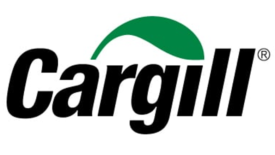Home » Keywords: » Cargill
Items Tagged with 'Cargill'
ARTICLES
The partnership will help meet consumers' indulgence needs.
Read More
Kemin appoints new technical sales manager
Brian Odino will work within a cross-functional staff to support U.S. customers.
March 26, 2024
Cargill unveils additions to its ingredients portfolio
New items shown at Expo West include coating fats and a pink Himalayan salt.
March 19, 2024
Fats and oils provide functionality, nutrition, and sustainability
Advances in technology are creating ingredients with more to offer
March 18, 2024
Sirio to launch BloomDays postbiotic gummies
The gummies will be launched at the upcoming Expo West conference.
February 14, 2024
Cargill edible oils obtains WHO seal of approval
The oils meet World Health Organization standards on industrial-produced trans-fatty acids.
February 1, 2024
EverSweet stevia sweetener obtains positive safety opinions from EFSA, UK Food Standards Agency
The opinions bring the sweetener closer to commercial availability in the EU and UK.
January 24, 2024
OFI names Roel van Poppel to the position of chief sustainability officer
van Poppel will lead the food solutions firm in its efforts to improve its environmental impact.
January 17, 2024
Snack on this: recent SF&WB multimedia highlights
Check out the latest podcasts and videos from the Snack Food & Wholesale Bakery team.
January 9, 2024
Cargill elects new chair for board of directors
Cargill President and CEO Brian Sikes is the chair Cargill’s Board of Directors, effective Jan. 1, 2024.
December 22, 2023
Get our new eMagazine delivered to your inbox every month.
Stay in the know on the latest snack and bakery industry trends.
SUBSCRIBE TODAY!Copyright ©2024. All Rights Reserved BNP Media.
Design, CMS, Hosting & Web Development :: ePublishing











